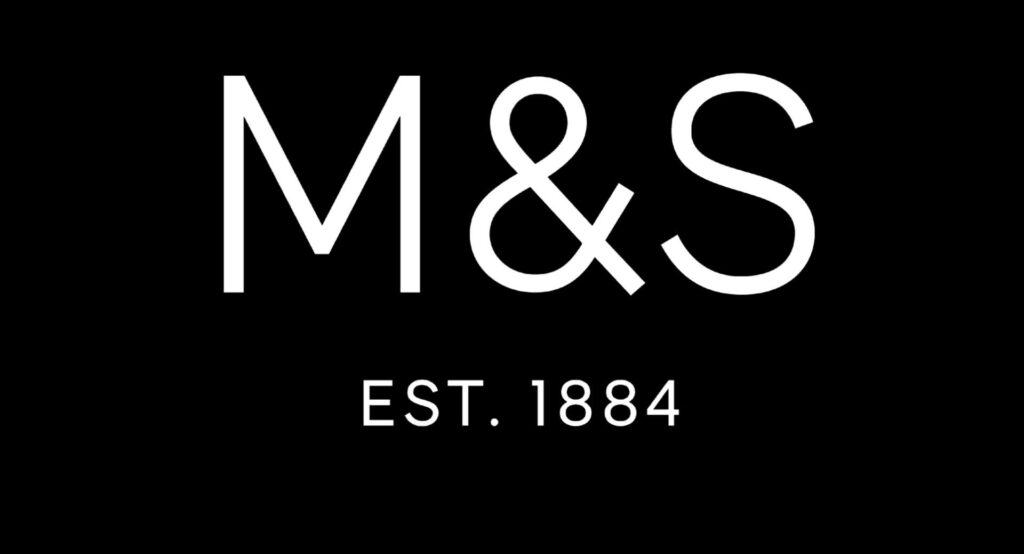15 Facts About Marks & Spencer You Didn't Know
Marks & Spencer is a beloved British retailer that has been a staple of the high street since its founding in 1884.
Known for its high-quality products and commitment to sustainability, Marks & Spencer has become an iconic brand around the world.
In this article, we’ll explore 15 fascinating facts about Marks & Spencer, from its origins as a small market stall to its position as a global retail giant.
So whether you’re a  long time fan or a newcomer to the brand, get ready to discover some surprising and intriguing facts about Marks & Spencer!
long time fan or a newcomer to the brand, get ready to discover some surprising and intriguing facts about Marks & Spencer!
Marks & Spencer is a well-known retailer in the United Kingdom, and it was indeed founded in 1884 by Michael Marks and Thomas Spencer.
1 The company started as a penny bazaar in Leeds, selling items such as household goods and clothing, and it has since grown to become one of the UK’s largest and most well-known retailers.
M&S is particularly known for its food and clothing ranges, but it also sells home goods and other products.
The first M&S store was a stall at the indoor covered market in Leeds’ Kirkgate area in 1884.
2 The stall sold a variety of goods for a penny each, including household items, toiletries, and food.
Marks’ business was successful, and he opened more stalls at other markets in the area. In 1894, Marks went into partnership with Thomas Spencer, and together they opened their first store in Manchester. However, the store did not sell only fresh produce; it sold a wider range of goods, including clothing, as well as food and household items.
Marks & Spencer is well-known for its commitment to quality, and it has a reputation for offering high-quality clothing and food products.
3 The company has also made sustainability a core part of its business strategy, with a focus on reducing its environmental impact and promoting responsible sourcing and production.
In terms of clothing, M&S has a range of sustainable initiatives in place, such as using recycled materials in its clothing lines, reducing waste by donating unsold clothing to charity, and promoting circular economy models. The company has also made a commitment to sourcing sustainable cotton and has launched several sustainable clothing lines, such as its Plan A sustainable range.
In its food business, M&S has made a commitment to reducing its environmental impact through initiatives such as using renewable energy, reducing packaging waste, and promoting sustainable farming practices. The company has also launched several food ranges that focus on sustainability, such as its Plant Kitchen range, which offers a range of plant-based food options.
Overall, M&S is a company that is committed to sustainability and ethical practices, and it has implemented a range of initiatives to reduce its environmental impact and promote responsible business practices.
In the mid-1960s, Marks & Spencer introduced a new policy called “Shop Your Way”.
4 Which allowed customers to browse and select items from the store’s range of clothing and accessories, try them on in a private fitting room, and only pay for what they wanted to keep.
This policy was a significant departure from the traditional retail model, which required customers to pay for their items before leaving the store.
The “Shop Your Way” policy was a huge success for Marks & Spencer, and it helped to cement the company’s reputation as a leader in retail innovation. Other retailers soon followed suit, and the concept of “try before you buy” became increasingly popular across the UK and beyond.
Marks & Spencer is credited with being the first UK retailer to introduce a self-service food section in 1951, which was a significant innovation in the grocery shopping experience at the time.
5 The concept of self-service grocery shopping was already established in the US, but it was a new concept for British consumers.
M&S’s new food section was located at its flagship store on Oxford Street in London, and it allowed customers to select their own items from the shelves and pay for them at the checkout. Before this, shoppers had to ask for assistance from shop assistants to select their items and process their purchases.
The introduction of self-service shopping was a major success for M&S, and it helped the company to increase efficiency and reduce labor costs. It also made the shopping experience faster and more convenient for customers, who appreciated the ability to browse and select their own items.
M&S’s self-service food section was soon adopted by other retailers, and it has now become the standard model for grocery shopping in the UK and around the world.
According to M&S’s annual report for the financial year 2020-2021, the company had a total of 777 stores in the UK and Republic of Ireland, including full-line stores, food-only stores, and outlet stores.
6 This number includes stores that are owned and operated directly by M&S, as well as franchises and international joint ventures.
In addition to its UK and Ireland stores, M&S also has a significant international presence, with stores in countries such as France, Greece, Hong Kong, India, and the UAE. The company has been expanding its international footprint in recent years, with a focus on developing its presence in key growth markets around the world.
M&S is a significant employer in the UK, with a workforce of around 70,000 employees in the country.
7 The company also has a presence in other countries, including Ireland, France, and India, where it employs thousands of people.
In addition to its own employees, M&S also supports many jobs throughout its supply chain, including those involved in manufacturing, transportation, and logistics. The company is committed to responsible sourcing and has implemented a range of initiatives to ensure that its suppliers operate ethically and sustainably.
Overall, M&S is a significant employer both in the UK and around the world, and the company plays an important role in supporting jobs and economic growth in many communities.
M&S has held a royal warrant since 1955, which is a prestigious endorsement granted to companies that have supplied goods or services to the royal household for at least five years.
8 The warrant is a mark of recognition of a company’s high standards and commitment to quality, and it is highly prized by businesses in the UK.
M&S’s royal warrant is granted by Her Majesty Queen Elizabeth II, and it allows the company to display the royal coat of arms on its products and marketing materials. The warrant is reviewed every five years, and it can be renewed if the company continues to meet the rigorous standards set by the royal household.
M&S’s long-standing relationship with the royal family has helped to cement its reputation as a high-quality retailer with a commitment to excellence. The company has supplied a wide range of products to the royal household over the years, including food, clothing, and home goods. The relationship is a source of pride for M&S, and it is a testament to the company’s long history of serving customers with the highest standards of quality and service.
M&S is committed to reducing its environmental impact and has set ambitious sustainability goals to achieve this. One of its key goals is to become a zero-waste business by 2025.
9 To achieve this goal, M&S has implemented a range of measures to reduce waste throughout its operations, including its supply chain and stores. The company has introduced a closed-loop system for its plastic packaging, which aims to recycle or reuse all of the plastic used in its operations. It has also launched a program to reduce food waste by redistributing surplus food to charities and community groups.
M&S has also made a commitment to source its products and raw materials sustainably. It has set targets to reduce the environmental impact of its products, including greenhouse gas emissions, water use, and waste. The company is working with its suppliers to improve sustainability throughout its supply chain, and it has implemented a range of initiatives to support ethical and sustainable farming practices.
In addition to these measures, M&S is also investing in renewable energy and energy efficiency to reduce its carbon footprint. The company has installed solar panels on its stores and warehouses, and it is working to reduce energy consumption through building design and management.
Overall, M&S is taking a comprehensive approach to sustainability, with a focus on reducing waste and improving environmental performance throughout its operations. Its commitment to becoming a zero-waste business by 2025 is a significant goal, and it demonstrates the company’s leadership in sustainable business practices.
M&S launched its Plan A sustainability program in 2007, with a focus on addressing some of the most significant environmental and social challenges facing the retail industry.
10 Plan A includes 100 commitments across three key areas: being a responsible retailer, involving customers and employees, and engaging with communities.
One of the key goals of Plan A is to reduce waste throughout M&S’s operations. The company has set targets to reduce waste in its supply chain, stores, and product packaging. It has also implemented a range of measures to improve recycling and reduce waste to landfill.
Another focus of Plan A is sourcing sustainable materials. M&S has set targets to source all of its cotton and wood from sustainable sources, and it is working to increase the proportion of sustainable raw materials used in its products. The company is also committed to reducing its carbon footprint and has set ambitious targets to reduce greenhouse gas emissions throughout its operations.
In addition to these environmental goals, M&S’s Plan A program also includes commitments to support local communities. The company has implemented a range of initiatives to support local charities and community groups, and it is working to promote sustainable economic development in the regions where it operates.
Overall, M&S’s Plan A sustainability program is a comprehensive and ambitious approach to addressing some of the most significant environmental and social challenges facing the retail industry. The program has helped to establish M&S as a leader in sustainable business practices and has inspired other companies to follow its example.
M&S is a major supporter of the Fairtrade movement, and it has been a leading retailer in promoting Fairtrade products.
11 All of the tea and coffee sold by M&S is Fairtrade certified, which means that the farmers and workers who produce these products receive a fair price for their labor and are able to invest in their communities.
M&S was one of the first major retailers in the UK to launch Fairtrade products, and it has been a strong advocate for the movement ever since. The company has a range of Fairtrade products in its stores, including chocolate, sugar, and bananas, among others.
M&S’s commitment to Fairtrade is part of its broader approach to ethical and sustainable sourcing. The company is committed to working with suppliers to ensure that they adhere to high ethical and environmental standards, and it has implemented a range of programs to support sustainable farming practices.
Overall, M&S’s support for Fairtrade and ethical sourcing is an important part of its sustainability strategy, and it demonstrates the company’s commitment to supporting workers and communities in developing countries. By promoting Fairtrade products, M&S is helping to create a more equitable and sustainable global economy.
M&S has been working to increase the use of sustainable materials in its clothing ranges, and it has a range of products made from materials such as organic cotton and recycled polyester.
12 Organic cotton is grown without the use of harmful pesticides and fertilizers, which can have a negative impact on the environment and the health of farmers and their communities. M&S has been using organic cotton in its clothing ranges for many years, and it has set a target to source 100% of its cotton from sustainable sources by 2025.
Recycled polyester is made from plastic bottles and other waste materials, and it helps to reduce the amount of waste that ends up in landfill. M&S has been using recycled polyester in its clothing ranges for several years, and it has set a target to increase the use of sustainable materials in its products.
In addition to using sustainable materials, M&S is also committed to reducing the environmental impact of its clothing production. The company has set a target to reduce the carbon footprint of its clothing by 30% by 2030, and it has implemented a range of measures to improve the sustainability of its supply chain.
Overall, M&S’s commitment to sustainable materials and production methods is an important part of its broader sustainability strategy. By using sustainable materials and reducing the environmental impact of its clothing production, the company is helping to create a more sustainable and equitable fashion industry.
M&S is known for its high-quality food products, and it has a reputation for offering unique and innovative products that are popular with customers.
13 Two of the company’s most popular food products are Percy Pig and Colin the Caterpillar sweets. Percy Pig is a line of gummy pig-shaped candies that are flavoured with fruit juice and natural colours, and they have become a favourite among customers of all ages. Colin the Caterpillar is a chocolate cake that is shaped like a caterpillar, and it has become a popular choice for birthdays and other celebrations.
In addition to these popular products, M&S offers a wide range of food products, including fresh produce, bakery items, ready meals, and snacks. The company is committed to using high-quality ingredients and working with suppliers who adhere to high ethical and environmental standards.
M&S has also introduced a range of initiatives to reduce food waste and promote sustainable practices in its food production and supply chain. For example, the company has launched a program to donate surplus food to local charities and has implemented measures to reduce the amount of packaging used in its products.
Overall, M&S’s food products are known for their quality and innovation, and the company is committed to promoting sustainability and ethical practices in its food production and supply chain.
M&S has a long history of supporting charitable causes, and it has launched a number of initiatives to support local communities and promote social responsibility.
14 One of the company’s most recent initiatives is its Sparks charity, which was launched in 2015. Sparks is a loyalty scheme that allows customers to earn points when they shop at M&S, and these points can be converted into donations to local charities and community projects. Since its launch, Sparks has raised over £10 million for local communities, and it has supported a wide range of projects, including education programs, community centres, and healthcare initiatives.
M&S also has a long history of supporting other charitable causes, and it has partnered with a number of organizations to promote social responsibility and environmental sustainability. For example, the company has worked with Oxfam to promote sustainable cotton farming in developing countries, and it has supported the British Red Cross with disaster relief efforts.
Overall, M&S’s commitment to social responsibility and charitable causes is an important part of its corporate philosophy, and it has helped to establish the company as a leader in sustainable and ethical business practices.
M&S has received numerous awards and recognitions for its commitment to sustainability and ethical business practices, and it has been widely recognized as a leader in this area.
15 In 2021, M&S was named the UK’s most sustainable retailer in the Sunday Times’ annual ranking of the country’s top 200 companies. The ranking takes into account a range of sustainability metrics, including greenhouse gas emissions, waste reduction, and supply chain transparency.
M&S has also been recognized by other organizations for its sustainability efforts. For example, the company has been awarded the Carbon Trust Standard for Supply Chain for its efforts to reduce carbon emissions in its supply chain, and it has been included in the Dow Jones Sustainability Index for 12 consecutive years.
In addition to these awards, M&S has been widely recognized for its ethical business practices, including its commitment to fair labor standards and responsible sourcing. The company has been named one of the world’s most ethical companies by the Ethisphere Institute, and it has received numerous awards for its work on responsible sourcing, including the Business in the Community Award for Environmental Leadership.
Overall, M&S’s commitment to sustainability and ethical business practices has been widely recognized, and it has helped to establish the company as a leader in responsible business.





Hello! Someone in my Myspace group shared this website with us so I came to check it out. I’m definitely enjoying the information. I’m bookmarking and will be tweeting this to my followers! Terrific blog and outstanding design.